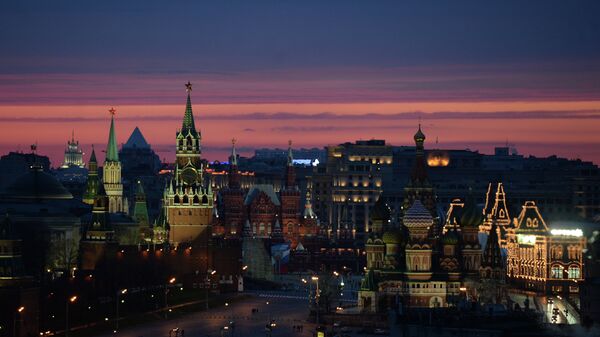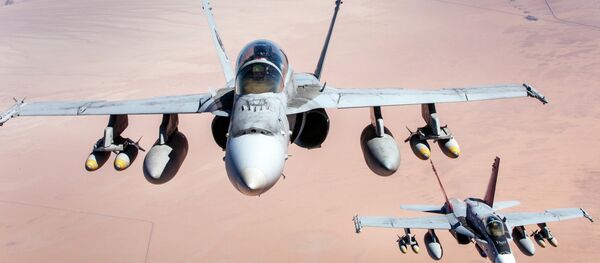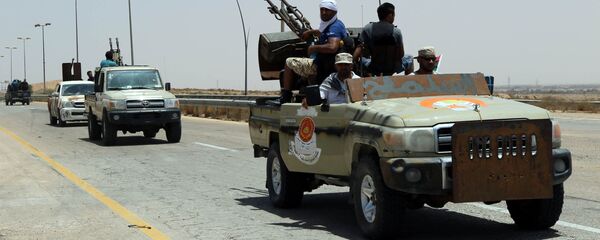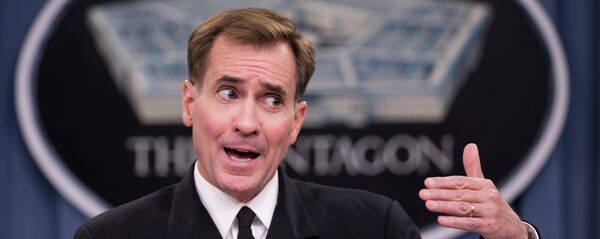In his editorial, recently published in the daily newspaper Israel Hayom, Amidror noted that Russia's status in the Middle East has changed "remarkably" in recent years, adding that this is connected first and foremost to "President Vladimir Putin's willingness to make an effort and commit resources, and to take risks in the interests of his country."
"All of this manifested itself in a variety of ways in practice," the retired officer explained. It includes "the success in the fight to stabilize the Assad government, efforts to liquidate Daesh terrorists, the establishment of a Russian air base in northern Syria – with the accompanying ground-based forces (in autumn, 2015), the use of the Iranian air base (August 2016), the rupture and subsequent resumption of cooperation with Turkey, the supply of arms to Iran, and the signing of the agreement (apparently unsuccessful) with the US Secretary of State on the future of Syria, where Russia, unlike the US, did not give up their positions."
"In all these cases, Russia has acted on the basis of one principle: a reluctance to accept as a fait accomplice the marginal position the West demanded Moscow take after the collapse of the Soviet Union."
"Therefore," the former top advisor noted, "Russia's leaders are looking to at least partially restore the Soviet Union's former status." This includes everything from symbolic actions (like emphasizing the USSR's enormous sacrifices in helping to defeat the Nazis in the Second World War) to attempts to maintain and grow Russia's influence in neighboring countries, and around the globe.
"It's for this reason that Russia has responded so fiercely to what it considered NATO's efforts to incorporate new countries that border Russia into the Western alliance. It's also for this reason that Moscow has refused to reconcile itself to the fact that the US, as the Kremlin believes, is trying to isolate it. Russia considers the expansion of NATO and the European Union to be threats, and does not believe explanations to the effect that these are purely defensive actions. It sees this as part of an American conspiracy to weaken and isolate the country."
The end result, Amidror noted, is that Russia directs its diplomacy specifically "against the US, considering it to be its main rival," taking particular advantage of the weakness of the current administration. That, he added, is why Moscow has refused to bend to Washington in the crises in both Ukraine and Syria.
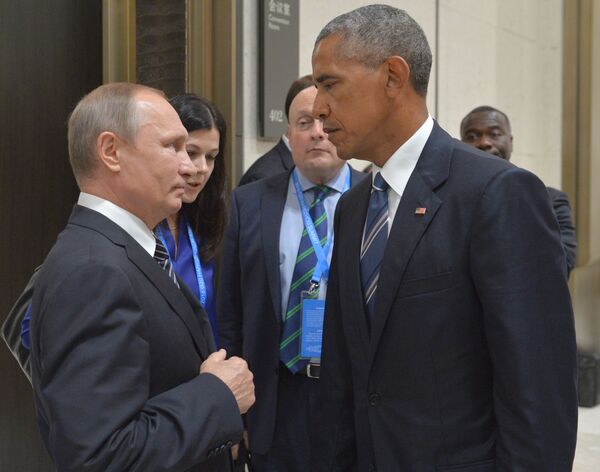
"If we keep in mind Russia's motives, and Moscow's conclusions regarding the US, we can better understand Russia's actions in the Middle East – a region that is geographically close to Russia's borders," the analyst suggested.
Preventing 'Another Libya'
In addition to the above-mentioned motivations, the 2011 NATO attack on Libya specifically was a particularly bitter lesson for Moscow, as far as Middle Eastern policy is concerned, Amidror stressed.
"In March 2011, Russia agreed to support a UN Security Council resolution, formulated in cautious terms to prevent the possibility of a large-scale war against the Gaddafi regime. After that, Russia was given an unpleasant shock, as Western countries took advantage of the mild UN resolution to justify the destruction of the Libyan government, to which Russia and the Soviet Union before it allocated a great deal of resources and political attention."
For Moscow, Amidror suggested, the chaos that has since come out of Libya was "proof on the need to prevent this scenario from ever being repeated. That is why Russia has categorically opposed any new resolutions justifying military action of any kind against the Syrian regime."
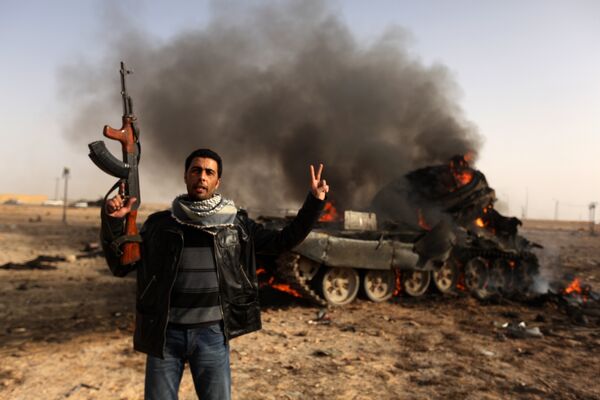
Moreover, "events in Egypt prior to the Libyan case also had an influence on Russian decision-making," the retired officer noted. "Against the background of the Arab Spring and the overthrow of Hosni Mubarak, the US was seen to have betrayed a loyal ally. Therefore, Moscow has worked very hard to try to demonstrate that in contrast to the US, Russia is faithful to its allies, and will stick by them."
Ultimately, "events in Egypt and Libya determined Russia's rapid response to Syria. Moscow quickly and unequivocally sided with Assad."
Domestic Radicals
According to Amidror, another important issue helping to shape Moscow's Middle Eastern policy is related to the fact that Russia itself has a large Sunni Muslim community, and is thus extremely concerned about preventing these people from being ensnared by Islamist extremism.
"Moscow has emphasized again and again that the overthrow of Saddam Hussein and the support of US Gulf allies for the Sunni opposition forces in Syria was the main cause of Daesh's success." The sentiment that "the world is paying the price for the reckless policy of the West" is one that is difficult to argue, Amidror suggested.
For this reason, in stages, Russia has gradually increased its support for Damascus, from the supply of ammunition and advanced weapons (something that concerns Israel, since some of these weapons ended up in the hands of Hezbollah – which Tel Aviv considers to be a terrorist group), to sending advisors and collecting information on terrorist targets, and finally, to Russia's direct intervention beginning in late September 2015.
'Superpower Status' Has Both a Military and Diplomatic Component
Amidror believes that Russia's demonstration of its advanced weaponry, including its latest cruise missiles, and the deployment of advanced air defense systems to Syria, was a very conscious decision to show off Russia's resurgent "superpower status" in the military sense, "not only to the countries of the region, but also to the US and Europe – and perhaps to them more than anything."
"Russia [also] wants to build a new relationship with the Sunni Arab states. Moscow has recently held negotiations with Egypt on arms shipments, and with Jordan on the construction of nuclear reactors. Relations with Saudi Arabia are more difficult, mainly due to Russian dissatisfaction with the glut in the oil market, but there has been some possibility of expanding Saudi investment in Russia, and even of Russian arms sales to Riyadh."
As far as relations with Israel are concerned, the analyst emphasized that there are "serious differences…especially in regard to the supply of modern weapons to Iran and Syria, and the transfer of such weapons to Hezbollah. On the other hand, Russia is ready to negotiate with Israel regarding air operations in Syrian airspace."
Amidror suggested that "from Russia's perspective, Israel is a pragmatic state – one that's trying to figure out what can actually be achieved (for example, long delays in the delivery of S-300s to Iran) and what isn't (for example, the full cancellation of that contract)."
"Israel," for its part, "has realized that it cannot prevent the cooperation of Syria, Iran and Hezbollah in the fight against the Syrian militants. But it was able to make practical arrangements to prevent clashes, which are quite possible given the fact that the two sides are active in the same space without reliable communications between them." Accordingly, "a coordination mechanism has been established to prevent such clashes; this of course is not an alliance, and not even the coordination of efforts, but only a technical means to avoid fighting, and it's not worth overestimating its political significance."
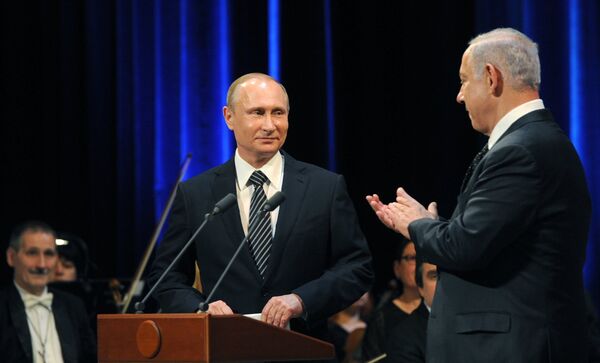
Moreover, according to Amidror, Israel "should not seriously hope that Moscow will deter Iran or Hezbollah in their actions against Israel, or cause them to be more moderate."
Nevertheless, the veteran officer stressed that ultimately, Israel "must continue to live with the presence of Russian forces in Syria, to clearly express its interests, and sometimes even to use force to protect its interests, but at the same time to avoid collisions with Russia, and support dialogue with Moscow at all levels."

